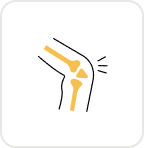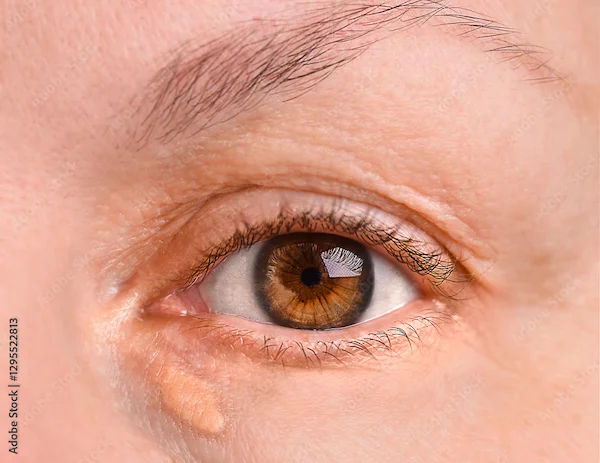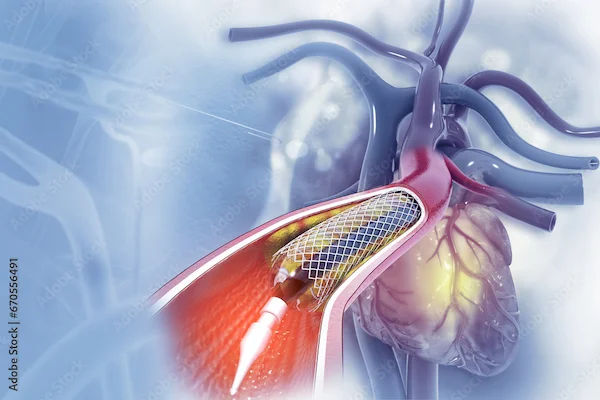Guide to Importance Of Preventive Health Care For Women
Learn the importance of preventive health care for women, including key check-ups, lifestyle tips, and strategies for staying healthy.

Written by Dr. Rohinipriyanka Pondugula
Reviewed by Dr. Vasanthasree Nair MBBS
Last updated on 13th Jan, 2026

Introduction
Staying healthy is more than just treating illness when it strikes; it's about actively preventing it. For women, whose health needs evolve dramatically throughout their lives, a proactive approach is not just beneficial; it's essential. The importance of preventive health care for women cannot be overstated. It’s the cornerstone of a long, vibrant, and fulfilling life. This guide will walk you through the key steps, screenings, and lifestyle choices that empower you to take control of your well-being. We'll cover everything from essential tests in your 20s to healthy aging strategies for your 60s and beyond, emphasising why a proactive partnership with your doctor is the best investment you can make in yourself.
Why Preventive Care is Non-Negotiable for Women's Health
Preventive care is the practice of maintaining health and preventing disease through regular checkups, screenings, and healthy lifestyle choices. For women, this approach is crucial because many common conditions, like heart disease, osteoporosis, and certain cancers, can be detected early or even prevented altogether with timely intervention.
Shifting from Reactive to Proactive: A New Mindset
Traditionally, healthcare has been reactive: you feel a symptom, you see a doctor. Preventive care flips this script. It’s about taking action before symptoms appear. Think of it as routine maintenance for your car: you change the oil not because the engine has exploded, but to prevent it from happening. Similarly, a well-woman exam is your body’s scheduled maintenance. This shift empowers you to catch potential issues like high blood pressure or prediabetes early, when they are most manageable and often reversible through lifestyle changes.
The Ripple Effect: How Your Health Impacts Everything
Your health is the foundation upon which your entire life is built. When you prioritise your well-being, the benefits ripple outwards. Good health means having the energy to excel at your career, be present for your family, and pursue your passions. It reduces sick days, lowers long-term healthcare costs, and significantly improves your quality of life. Investing in preventive health checkups is an investment in your future self, ensuring you can enjoy all of life’s moments to the fullest.
Consult a Gynaecologist for the best advice
The Preventive Health Timeline: Essential Screenings by Decade
A one-size-fits-all approach doesn't work for women's health. Your needs change with each life stage. Here’s a decade-by-decade guide to key screenings and focus areas.
In Your 20s and 30s: Building a Strong Foundation
This is the time to establish healthy habits and baseline measurements. Your women's wellness visit should be an annual ritual.
Reproductive and Sexual Health Focus
- Pap Smear/HPV Test: Starting at age 21, regular Pap smears are essential for detecting cervical cancer early.
Guidelines have changed, so discuss the right schedule (often every 3-5 years) with your gynaecologist. - STI Screening: Sexually active women should be screened for chlamydia, gonorrhoea, and other infections annually or
with new partners. - Clinical Breast Exam: While formal mammograms aren't typically needed yet, your doctor should perform a clinical breast exam during your annual visit.
Baseline Metabolic and Cardiovascular Checks
- Blood Pressure: Get it checked at least every two years.
- Cholesterol: A baseline test in your 20s is recommended, with follow-ups based on results and family history.
- BMI and Weight: Discuss healthy weight management strategies.
- Mental Health: Don’t neglect screening for anxiety and depression, which are common during these high-stress years.
In Your 40s and 50s: Navigating Mid-Life Transitions
This decade often brings perimenopause and menopause, shifting health priorities towards preventing heart disease and cancer.
Cancer Screening Intensification
- Mammograms: Breast cancer risk increases with age. Most guidelines recommend starting annual or biennial mammograms at age 40 or 50. Discuss your personal risk factors with your doctor to decide the best time to start.
- Colon Cancer Screening: Screening typically begins at age 45 with a colonoscopy or stool-based test.
Monitoring Hormonal and Metabolic Shifts
- Diabetes Screening: With hormonal changes, the risk of Type 2 diabetes increases. Regular blood sugar tests (like HbA1c) are crucial. Apollo24|7 offers a convenient home collection for tests like vitamin D or HbA1c, making it easier to stay on top of your health.
- Thyroid Function Test: Thyroid issues are common in women, especially post-menopause. A simple TSH blood test can
check for problems.
In Your 60s and Beyond: Prioritising Longevity and Quality of Life
The focus shifts to maintaining mobility, cognitive function, and managing chronic conditions.
Bone, Heart, and Cognitive Health
- Bone Density Scan (DEXA): This test for osteoporosis is recommended for all women by age 65, or earlier if you have risk factors.
- Continued Cancer and Heart Screenings: Follow your doctor's advice on continuing mammograms, colonoscopies, and
cardiovascular checks. - Vaccinations: Stay up-to-date with shingles, pneumococcal, and annual flu vaccines.
Get Your Health Assessed
Beyond the Doctor's Office: Daily Habits for Lifelong Wellness
Screenings are vital, but 80% of chronic disease is preventable through lifestyle. Your daily choices are your first line of defense.
Nutrition: Fueling Your Body Right
A balanced diet rich in fruits, vegetables, whole grains, and lean protein supports every system in your body. Focus on calcium and vitamin D for bone health, fiber for digestive health, and omega-3s for heart and brain health.
Movement: The Power of Consistent Exercise
Aim for at least 150 minutes of moderate-intensity exercise per week. This includes strength training (vital for bone density and metabolism) and weight-bearing exercises like walking or dancing.
Mindfulness: Managing Stress and Prioritising Sleep
Chronic stress wreaks havoc on your hormonal and cardiovascular systems. Incorporate stress-reducing activities like yoga, meditation, or hobbies. Prioritise 7-9 hours of quality sleep per night; it’s when your body repairs itself.
Special Considerations in Women's Preventive Care
Women’s health needs change throughout life, requiring tailored preventive care.
Understanding Your Family Medical History
Your genetics play a significant role. Knowing if close relatives had breast cancer, heart disease, or diabetes before age 50 can signal a need for earlier or more frequent screening. Share this history with your doctor.
Mental Health is Health: Breaking the Stigma
Women are nearly twice as likely as men to experience depression and anxiety. A preventive health approach must include your emotional well-being. Talk openly with your doctor about your mood, stress levels, and any feelings of overwhelm. If symptoms of low mood or anxiety persist beyond two weeks, consult a doctor online with Apollo24|7 for further evaluation.
Conclusion: Your Health, Your Responsibility
The journey to lifelong health is a marathon, not a sprint. Understanding the profound importance of preventive health care is the first step. By embracing a proactive mindset, adhering to recommended screening schedules, and cultivating healthy daily habits, you are not just preventing disease; you are actively building a life of energy, resilience, and joy. You are the CEO of your health. Take charge, partner with your healthcare providers, and make the commitment to your well-being today. Your future self will thank you.
Consult a Gynaecologist for the best advice
Consult a Gynaecologist for the best advice

Dr. Sai Lakshmi Daayana
Gynaecological Oncologist
18 Years • MBBS, MRCOG
Hyderabad
Apollo Hospitals Jubilee Hills, Hyderabad
(225+ Patients)

Dr. Sreeparna Roy
Obstetrician and Gynaecologist
8 Years • MBBS , MS (OBSTETRICS & GYNAECOLOGY), Fellowship in Infertility, Endoscopy & Ultrasonography), Fellowship in Laparoscopy & Hysteroscopy,DRM
Kolkata
Dr Utsa Basu Clinic, Kolkata

Dr. Revathi S Rajan
Obstetrician and Gynaecologist
24 Years • MBBS, DGO, DNB.FFMM
Bengaluru
Apollo Clinic, JP nagar, Bengaluru

Dr. Prashant Chandra Das
Surgical Oncologist
15 Years • MBBS (MKCG Medical college) MCh (Surgical Oncology, Kidwai memorial institute of Oncology, Bangalore) MS (General Surgery, BHU Varanasi) Fellowship in Minimal Access Surgery ( FMAS). ESSO Course On Minimally Invasive Esophagectomy & Gastrectomy (UMC, Utrecht, Netherlands). Trained in Robotic and Laparoscopic Cancer Surgery.
Bhubaneswar
Apollo Hospitals Old Sainik School Road, Bhubaneswar
(25+ Patients)

Dr. Swati Shah
Surgical Oncologist
15 Years • DNB Surgical Oncology, certified Robotic Cancer Surgeon
Ahmedabad
Apollo Hospitals Gandhinagar, Ahmedabad
(25+ Patients)
Consult a Gynaecologist for the best advice

Dr. Sai Lakshmi Daayana
Gynaecological Oncologist
18 Years • MBBS, MRCOG
Hyderabad
Apollo Hospitals Jubilee Hills, Hyderabad
(225+ Patients)

Dr. Sreeparna Roy
Obstetrician and Gynaecologist
8 Years • MBBS , MS (OBSTETRICS & GYNAECOLOGY), Fellowship in Infertility, Endoscopy & Ultrasonography), Fellowship in Laparoscopy & Hysteroscopy,DRM
Kolkata
Dr Utsa Basu Clinic, Kolkata

Dr. Revathi S Rajan
Obstetrician and Gynaecologist
24 Years • MBBS, DGO, DNB.FFMM
Bengaluru
Apollo Clinic, JP nagar, Bengaluru

Dr. Prashant Chandra Das
Surgical Oncologist
15 Years • MBBS (MKCG Medical college) MCh (Surgical Oncology, Kidwai memorial institute of Oncology, Bangalore) MS (General Surgery, BHU Varanasi) Fellowship in Minimal Access Surgery ( FMAS). ESSO Course On Minimally Invasive Esophagectomy & Gastrectomy (UMC, Utrecht, Netherlands). Trained in Robotic and Laparoscopic Cancer Surgery.
Bhubaneswar
Apollo Hospitals Old Sainik School Road, Bhubaneswar
(25+ Patients)

Dr. Swati Shah
Surgical Oncologist
15 Years • DNB Surgical Oncology, certified Robotic Cancer Surgeon
Ahmedabad
Apollo Hospitals Gandhinagar, Ahmedabad
(25+ Patients)
More articles from General Medical Consultation
Frequently Asked Questions
1. What exactly is included in a 'well-woman exam'?
A well-woman exam is a preventive checkup that typically includes a review of your medical history, a physical exam (including a clinical breast exam and pelvic exam), a Pap smear/HPV test as needed, discussions about lifestyle, and screenings for blood pressure, cholesterol, and mental health.
2. I feel fine. Do I really need to go for a checkup?
Absolutely. Many serious health conditions, like high blood pressure or early-stage diabetes, are 'silent' and show no obvious symptoms. Preventive care is designed to detect these issues before you feel unwell, when they are easiest to treat.
3. How often do I need a Pap smear?
Guidelines have evolved. For most women, a Pap smear is recommended every 3 years from age 21-29. From 30-65, it's often a Pap smear plus an HPV test every 5 years. However, your doctor will recommend a schedule based on your personal health history.
4. What are the most important healthy lifestyle tips for busy women?
Focus on small, consistent habits: take a 10-minute walk daily, meal prep on weekends to ensure healthy eating, practice 5 minutes of deep breathing to manage stress, and establish a regular sleep schedule. Consistency trumps perfection.
5. When should I start thinking about bone health?
It's never too early! Building strong bones through diet and exercise in your youth is crucial. However, formal screening for osteoporosis with a bone density test is typically recommended for all women at age 65, or earlier if you have risk factors like a family history or long-term steroid use.







